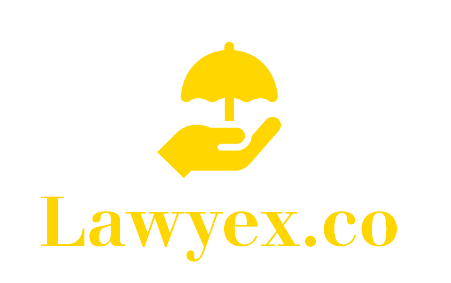Running a business comes with many risks, and having the right insurance coverage can help protect business owners from financial loss. Here’s what you need to know about the main types of business insurance and what they cover.
The term “business insurance” is a bit of a misnomer, as it doesn’t only cover risks for businesses. In fact, the most basic type of business insurance is often called personal liability insurance and covers individuals who are sued for accidents or injuries they cause—such as someone slipping in their home and breaking their arm after walking on a wet floor that wasn’t properly cleaned before going to bed (which happened to me once!). However, there are also many types of business insurance an entrepreneur should consider purchasing.
The importance of business insurance
Business insurance is an important part of running a business. It protects your personal assets, as well as those of your company and its employees. In addition to protecting against financial loss and legal liability, business insurance can help you get a loan or other financing when needed.
An overview of the different types of coverage available
The different types of business insurance coverages can be broken down into four main categories: general liability, professional liability, commercial property and commercial auto. Each of these coverages plays an important role in protecting your business from potential hazards (like getting sued) and keeping it running smoothly.
You’ll want to make sure you have enough coverage for each one so that if something happens on your watch, you’re covered. But there’s no need to go overboard–you don’t want to get stuck paying more than necessary just because everyone else has more coverage than they need!
General Liability Insurance
General Liability Insurance is a broad form of insurance that covers losses caused by an insured person’s negligence. General liability insurance applies to claims involving bodily injury, property damage and personal injury. It also covers advertising injury–such as libel or slander–in which case the insured may be liable for statements made about a third party through the medium of advertising.
General Liability Insurance can be purchased on a per-claim basis or as an annual premium depending on the needs of your business and its exposure to risk factors such as number of employees and location of operations.
The basics of general liability insurance
General liability insurance is a cornerstone of business insurance, and it’s the most common type of coverage you’ll need. It protects your company in case someone sues or files a claim against you after being injured by your products or services.
General liability coverage will help pay for expenses related to:
- Lawsuits over bodily injury or property damage caused by your business activities (including advertising injuries)
- Medical bills associated with an accident caused by someone who was injured on your premises, as well as lost wages if they miss work because of their injuries
Coverage for bodily injury, property damage, and advertising injury
Bodily injury is when you or your employees are injured in the course of doing business. Property damage occurs when someone’s property is damaged as a result of your business. Advertising injury covers things like slander, libel and invasion of privacy.
What exactly does this mean? Bodily injury can include medical bills, lost wages and pain and suffering. Property damage covers repairs to physical assets such as buildings or vehicles (it doesn’t cover data loss). Advertising injury covers situations where someone sues because they feel they have been defamed by something written about them on social media or elsewhere online–for example if someone posts something negative about you on Yelp!
Importance & benefits of general liability insurance
General liability insurance is a critical part of any business’s financial health. It protects your business from lawsuits and covers you for lawsuits from customers, vendors and employees. It also covers third parties, government agencies and other businesses. General liability insurance is often referred to as “all-risk” coverage because it provides protection against any type of claim that might arise out of your operation. This can include claims related to:
- Personal injury
- Property damage
- Product liability (if you manufacture goods)
The level of coverage provided by general liability policies varies widely depending on factors such as industry type, size and location; however most policies provide some amount of protection against each type listed above
Professional Liability Insurance
Professional liability insurance is one of the most important types of business insurance. It covers legal costs and settlements if you’re ever sued for malpractice or negligence.
It’s not just doctors who need professional liability insurance; anyone who provides a professional service can benefit from this type of coverage, including lawyers, accountants and real estate agents. Professional liability coverage protects you against claims that arise from your work as a consultant or contractor (for example: “The contractor was negligent when constructing my house”).
If someone sues you for malpractice or negligence while providing these services–or if they file an official complaint with their state’s licensing board–the cost of defending yourself will be covered by this type of policy.
Cyber Insurance
Cyber insurance is a must for businesses that rely on digital assets. It covers the cost of a business interruption or data breach, and it’s often included in a business owner’s policy (BOP).
But don’t think that getting cyber insurance means you can slack off on security: Cyber insurance doesn’t replace solid IT practices and proper planning. If you’re not taking basic steps like keeping your software up-to-date, using strong passwords, and monitoring web traffic coming into your network–and responding quickly if something looks suspicious–then you may find yourself without coverage when things go wrong.
Employment Practices Liability Insurance (EPLI)
Employment Practices Liability Insurance (EPLI) is a type of business insurance that protects you from claims made by employees, former employees and their families. EPLI can cover the cost of defending against such claims, as well as paying for punitive damages awarded by a court. This type of coverage also provides legal defense fees if you’re sued for wrongful termination or discrimination.
Employers need this kind of protection because many states have laws requiring employers with more than 10 employees to provide employee handbooks that outline the rights and responsibilities of all parties involved in the hiring process–from applicants to supervisors and managers. This includes informing new hires about things like company policies on dress code, sick days and overtime pay; plus it gives them details on HR procedures including how complaints will be handled internally before being referred outside sources like labor unions or government agencies like OSHA (Occupational Safety & Health Administration).
Commercial Property Insurance
Commercial property insurance covers your business’ buildings, equipment and other property. It’s important to choose the right amount of coverage for your business because it can help protect against financial losses that could otherwise destroy the company.
Commercial property insurance includes several types of coverage:
- Building (or structural) – This provides protection against damage from fire or other perils, like windstorms or hail storms.
- Extra expense – This provides money to cover additional expenses related to repairing damaged property during an emergency situation such as a fire or flood. The extra expense benefit may also include costs associated with moving employees into temporary quarters if their normal workplace cannot be used after an event such as a tornado strike destroys part of a building where they work every day at 9am sharp!
Business Interruption Insurance
Business interruption insurance covers the loss of business income due to events such as fire, flood or other disasters. It will pay for the cost of rebuilding or relocating your business and ensures that you can continue operating during a disaster. Business interruption insurance can be purchased as a standalone policy, but it is more common to find it included in a broader BOP package.
Equipment Breakdown Insurance
Equipment breakdown insurance is a type of business insurance that covers the cost of repairing or replacing your company’s equipment in the event it breaks down. It also covers labor costs associated with repairing or replacing the broken item, as well as any materials needed to complete these tasks.
This coverage helps ensure that you’ll be able to keep operating in the event something goes wrong with one of your machines, which can happen even if they’re regularly maintained and cared for properly. For example, if one of your computers stops working because its hard drive fails, you won’t have to shut down operations just because there’s no way around it–you’ll be able to get everything back up and running again quickly instead.
Equipment breakdown policies vary widely depending on what kind of business uses them (eBay sellers vs., say) but generally include: coverage for all kinds of machinery used by businesses; replacement value instead of actual cash value (meaning this type); deductibles that range from $500-$5k per claim up front before any benefits kick-in depending on how much coverage amount chosen); optional upgrades like extended warranties offered through third parties like SquareTrade
Commercial Auto Insurance
Commercial auto insurance covers the business vehicle, its driver and passengers. It also covers cargo being transported in the vehicle. Insurance policies for commercial drivers include liability coverage for damage to other vehicles and property, as well as injury to passengers and pedestrians.
Commercial auto insurance is a type of personal property insurance that protects an insured person against losses resulting from damage caused by an accident involving his or her motor vehicle(s). Commercial auto insurance is not required by law but may be purchased by individuals who own or lease a car used in connection with their businesses.
Workers’ Compensation Coverage
Workers’ compensation insurance covers medical costs and lost wages that employees may incur as a result of job-related injuries or illnesses. In most states, it’s mandatory for employers to provide workers’ compensation coverage for employees who are injured on the job. Workers’ compensation is not a substitute for health insurance or disability insurance, however; you should still have those in addition to your workers’ comp coverage.
It’s also important to note that while workers’ compensation is mandatory in most states, it doesn’t apply everywhere–if you work remotely (for example), then you’ll need different types of policies depending on where you live and what kind of business activity takes place there
The purpose of workers’ compensation insurance
Workers’ compensation insurance is designed to protect you from claims made by employees who are injured on the job. In other words, if an employee gets hurt and files a claim against you for medical bills or lost wages, workers’ comp will pay those costs. If the employee dies as a result of their injury (or disease), survivors may be able to collect death benefits through this type of policy as well.
If you don’t have this kind of coverage, then your business could face serious financial risks when it comes time to settle these types of claims–especially if they’re large enough that they threaten your ability to stay afloat financially!
Business Owner’s Policy (BOP)
A business owner’s policy (BOP) is a combination of business insurance. It covers all the types of insurance that you need, including liability, property and equipment. A BOP can be a good choice for small businesses or those with many employees who have high-value assets to protect.
This type of policy combines general liability, auto and inventory coverage into one package so you don’t have to buy each separately. You’ll find it easier and cheaper than buying these policies separately because you’ll pay lower premiums when they’re bundled together under one roof–your own!
Business insurance is a must for any entrepreneur.
Business insurance is a must for any entrepreneur. It protects your business, its employees and the assets that make it run. A good policy can cover many different types of risk, such as fire damage, theft or injury to someone who works for you. It’s important to choose the right policy for your needs and budget so that you get all the protection you deserve without paying too much money in premiums.
Business owners need to be aware of what they’re buying when they sign up with an insurance company–and make sure they understand exactly what each type of coverage does (and doesn’t) provide before signing anything!
Conclusion
Business insurance is a must for any entrepreneur. It will protect your business from unexpected setbacks and give it the best chance of success.



Average Rating